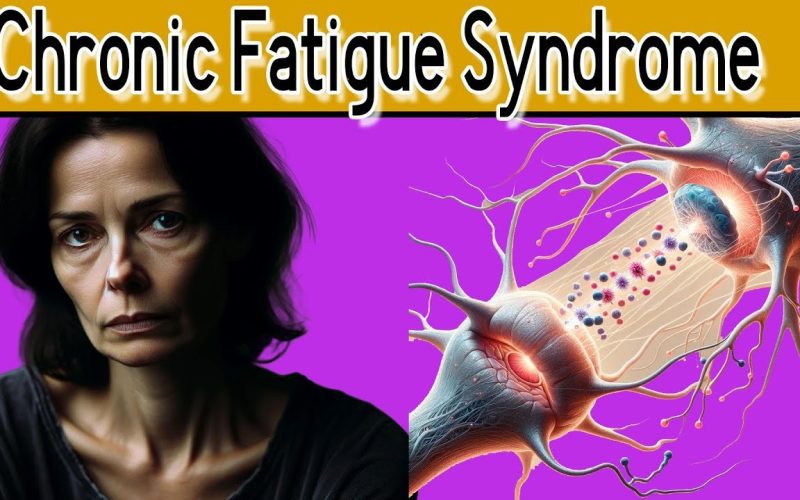Chronic Fatigue Syndrome (CFS), also known as Myalgic Encephalomyelitis (ME), has long baffled the medical community due to its complex symptomatology and elusive etiology. Characterized primarily by profound, persistent fatigue that is not alleviated by rest and is exacerbated by physical or mental activity, CFS can severely impair an individual’s quality of life. Recent research, however, is shedding new light on this enigmatic condition, opening doors to innovative treatment approaches and a better understanding of its underlying mechanisms.
Understanding Chronic Fatigue Syndrome
Chronic Fatigue Syndrome affects millions of people worldwide, yet its precise cause remains unknown. The syndrome is often diagnosed through a process of exclusion, where other potential causes of fatigue are ruled out. Symptoms of CFS include, but are not limited to:
- Unrefreshing sleep
- Cognitive impairments (often referred to as “brain fog”)
- Muscle and joint pain
- Sore throat and swollen lymph nodes
- Headaches
- Post-exertional malaise (PEM), where symptoms worsen after physical or mental exertion
The heterogeneity of symptoms and their overlap with other conditions complicate both diagnosis and treatment. However, recent advancements in research are providing new insights into potential biomarkers and pathophysiological mechanisms.
Recent Research Breakthroughs
Immunological Factors
One promising area of research focuses on the immune system’s role in CFS. Studies have identified abnormalities in immune cell function and cytokine profiles in patients with CFS. For instance, elevated levels of pro-inflammatory cytokines such as interleukin-6 (IL-6) and tumor necrosis factor-alpha (TNF-α) have been observed. These findings suggest that chronic inflammation may contribute to the symptoms of CFS.
Metabolic and Mitochondrial Dysfunction
Another area of interest is the role of metabolic and mitochondrial dysfunction in CFS. Research has shown that patients with CFS often exhibit abnormalities in energy metabolism. Specifically, studies have found impaired oxidative phosphorylation and reduced ATP production in muscle cells. This mitochondrial dysfunction may explain the profound fatigue and PEM experienced by CFS patients.
Neurological Insights
Advancements in neuroimaging techniques have provided new insights into the neurological aspects of CFS. Functional MRI (fMRI) studies have revealed alterations in brain connectivity and reduced blood flow to certain brain regions in CFS patients. These findings suggest that central nervous system dysfunction may play a crucial role in the cognitive impairments and sensory sensitivities associated with CFS.

Emerging Treatments
While there is currently no cure for Chronic Fatigue Syndrome, ongoing research is exploring various treatment avenues that target the underlying mechanisms identified in recent studies.
Immunomodulatory Therapies
Given the evidence of immune dysregulation in CFS, immunomodulatory therapies are being investigated. Rituximab, a monoclonal antibody that targets B cells, has shown promise in preliminary trials. Although larger, more definitive studies are needed, these early results offer hope for a subset of CFS patients with immune-related abnormalities.
Metabolic Support
Interventions aimed at improving mitochondrial function and energy metabolism are also being explored. Supplements such as Coenzyme Q10, NADH, and L-carnitine have shown some benefit in small trials, helping to enhance cellular energy production and reduce fatigue. Additionally, dietary interventions that focus on optimizing nutrient intake and reducing inflammation are being studied for their potential to alleviate symptoms.
Neurological Therapies
Given the neurological findings in CFS, therapies that target the central nervous system are under investigation. Cognitive Behavioral Therapy (CBT) and Graded Exercise Therapy (GET) have been the mainstays of treatment, although their efficacy and appropriateness have been subjects of debate. Newer approaches, such as neurofeedback and transcranial magnetic stimulation (TMS), are being explored for their potential to modulate brain activity and improve cognitive function.
Pharmacological Approaches
Pharmacological treatments are also being developed to target specific symptoms of CFS. Low-dose naltrexone (LDN), for example, has shown promise in reducing pain and inflammation in small studies. Antiviral medications are being tested in patients with evidence of chronic viral infections, such as Epstein-Barr virus (EBV) or human herpesvirus 6 (HHV-6), which have been implicated in some cases of CFS.
Holistic and Integrative Approaches
In addition to these targeted therapies, holistic and integrative approaches are gaining traction in the management of CFS. These approaches emphasize the importance of addressing the whole person, considering physical, emotional, and psychological aspects of health.
Mind-Body Interventions
Mind-body interventions such as mindfulness meditation, yoga, and tai chi have shown promise in reducing stress and improving overall well-being in CFS patients. These practices can help modulate the stress response, reduce inflammation, and enhance emotional resilience.
Nutritional and Lifestyle Modifications
Nutritional and lifestyle modifications are also important components of a comprehensive treatment plan for CFS. A balanced diet rich in anti-inflammatory foods, adequate hydration, and regular, gentle physical activity can help support overall health and reduce symptom severity. Sleep hygiene practices and stress management techniques are equally crucial in managing the multifaceted nature of CFS.
The Road Ahead
While significant progress has been made in understanding Chronic Fatigue Syndrome, much work remains to be done. Continued research is essential to unravel the complex interplay of genetic, immunological, metabolic, and neurological factors that contribute to CFS. Collaborative efforts among researchers, clinicians, and patient advocacy groups are crucial in driving this research forward and translating findings into effective treatments.
Conclusion
Chronic Fatigue Syndrome is a debilitating condition that has long posed challenges for patients and healthcare providers alike. However, recent research is offering new hope by uncovering potential biomarkers and pathophysiological mechanisms that could pave the way for innovative treatments. While there is no one-size-fits-all solution, a combination of targeted therapies, holistic approaches, and ongoing research holds promise for improving the lives of those affected by CFS. As our understanding of this complex syndrome continues to evolve, so too will our ability to provide effective, personalized care for those in need.












